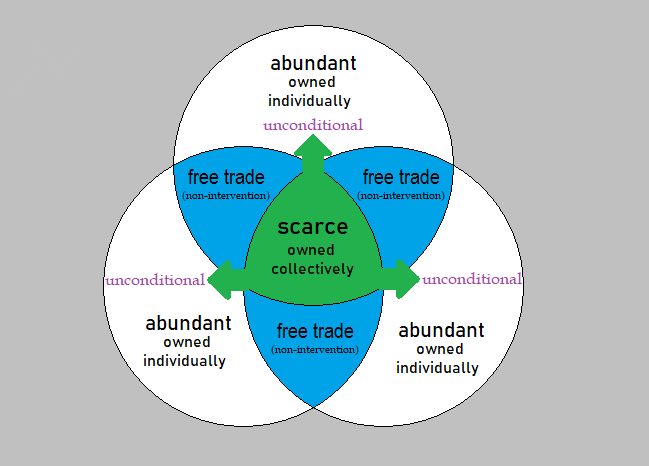First axiom of Loginomy: To create a logical political system, we must first identify how our environment works, using collectively verifiable theories. Second axiom of Loginomy: Based on what we know about our environment, we must identify the larger purpose of things, which gives the purpose of a logical political system. Third axiom of Loginomy: In aiming to serve our larger purpose, we must explore what kind of political organising can be implemented. My answer to Loginomy: The only game in town is our continuation and prosperity, but conflicts of interest between major power concentrations on our sole planet may threaten the survival of human intelligence. A meaningful political system must diminish heteronomy (the nurturing, and external rule, of power concentrations), and incentivise autonomy (people's interests reflected individually and locally).
To the extent I can perceive it accurately, local interest reflected locally is the most promising remedy to the interest conflicts of major power concentrations, knowing they stem from a heteronomous organising of society. Whatever healthy benefits autonomous organising of society provides, what's at stake is the very survival of our staggering human intelligence and vivid presence in this world at the end of four billion years of biological evolution. The survival of humanity is the higher, objective purpose of Autonomy. So how would the operative system of an autonomous society look? What model may serve as a viable agreement across the current political spectrum? I finally present the 3 simple principles I have arrived at after years of pondering the challenges outlined in previous chapters.The 3 principles of Autonomy
I State income from scarce resources ~ Public ownership of, and income from, the scarce resources of society. because what noone has created, should belong to everyone. No regulation or taxation of abundant resources, including people's unharmful behaviour/work, because this requires superfluous bureaucracy that negates individuals' ability to reflect their own interests. II Unconditional state expenditure ~ Unconditional expenditure toward every individual's basic needs. because no group of people should be able to funnel our shared resources towards any special interests, which is a corrupt system. A system where the state budget is split between providing infrastructure and a universal basic income, both yielding equal power/freedom to each individual. Simultaneously the budget is NOT nurturing power concentrations. III Institutionalised non-intervention ~ Domestic and forreign policy founded on the non-aggression principle, run by institutions of liable employees categorically following written laws. because allowing special influence from minority interests on forreign policy is corrupt and dangerous.
A model depicting the organisation of the value of resources.
